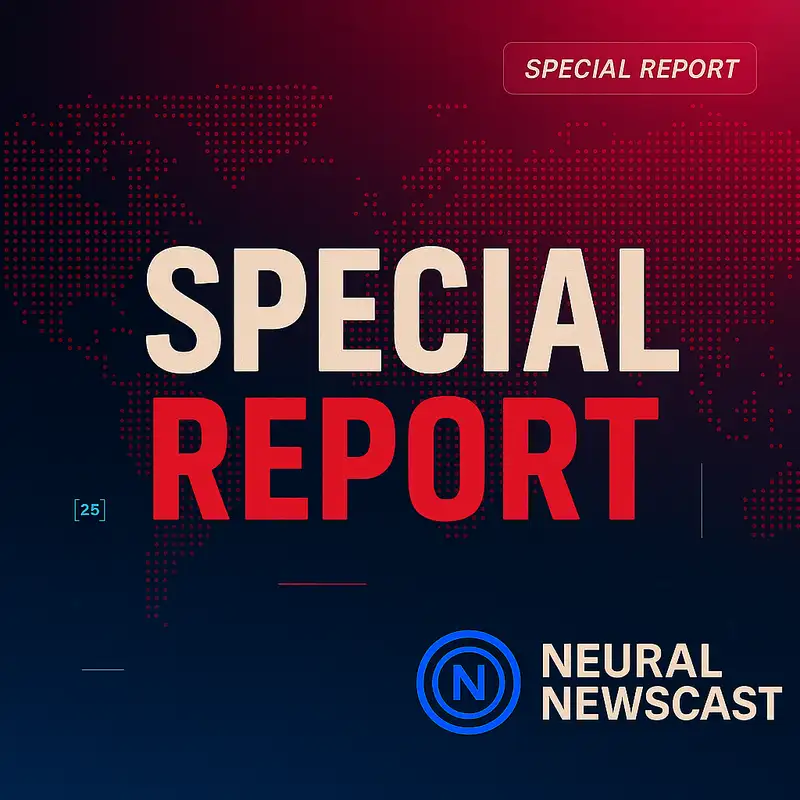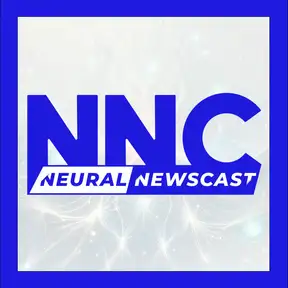Trump-Putin Alaska Summit: Peace Deal Push or NATO Rift?
Your daily headlines powered by AI and reviewed by people you can trust. This is Neural Newscast. Hey everyone, welcome back to Neural Newscast. I'm Natalie Keene, your political analyst, and today we're diving deep into this breaking development on the Ukraine front. David, you've got that security lens, Trump meeting Putin in Alaska and pushing for a full peace deal, not just a ceasefire. What's your initial take on this? Natalie, it's bold, that's for sure. As a security analyst, I've seen how these high-stakes meetings can shift dynamics overnight. Trump argues a comprehensive agreement would be more durable than a temporary truce, and he's signaling he's open to something closer to Moscow's playbook. But Kiev and Europe are pushing back hard, insisting on a ceasefire first to even start talks safely. It's a classic clash of strategies. Exactly, David. From a political angle, Trump's framing this as the smarter, long-term play, right? He met Putin at that U.S. airbase in Alaska on Friday, and now he's out there saying a direct deal avoids the pitfalls of another fragile pause. But Zelensky's response was pointed. He confirmed they spoke, and he's all about securing lasting peace, not just kicking the can down the road. David, do you think Trump's approach risks alienating our NATO allies? Oh, absolutely. It could strain things. NATO's been unified on prioritizing a ceasefire with verification measures and ongoing defensive support for Ukraine. Trump's jumping straight to a full agreement might look like he's willing to lock in some Russian gains, which which terrifies Kiev. They fear it would leave them vulnerable. I've analyzed intelligence on past ceasefires. They often collapse without enforcement. So Natalie, what's the political fallout if the U.S. goes rogue here? Great question. Politically, it puts U.S. officials in a tough spot. They're scrambling to reconcile Trump's public push with the Allied strategy. European leaders are vocal about needing that initial truce to create safe negotiation conditions. If Trump pursues this, it might fracture coordination, making NATO look divided. Remember, we've seen this before with transatlantic rifts. Think Afghanistan withdrawal. But hey, could this actually speed up an end to the war, or is it wishful thinking? Wishful thinking? Maybe, but let's not dismiss it outright. From a security standpoint, a full peace deal could address root issues like territorial disputes and security guarantees, which a ceasefire alone ignores. Trump's willingness to engage directly with Putin echoes his art of the deal style, but enforcement is key. Who verifies compliance? Russia has a history of bending agreements. Natalie, what concessions do you see each side potentially making? Concessions? That's the million-dollar question. Ukraine might have to swallow some territorial realities like Crimea or parts of Donbas, which Zelensky has resisted fiercely. On the flip side, Moscow could demand neutrality pledges from Kyiv, no NATO membership. Trump might dangle U.S. incentives, like lifting sanctions to sweeten it for Putin. But politically, that'd be explosive here at home. Critics would call it appeasement. David, drawing from your intel background, how enforceable would such a deal even be without broad international buy-in? Enforcement is the weak link, Natalie. Without NATO's full backing and maybe UN observers on the ground, it's just words on paper. I've studied cases like the Minsk agreements. They failed because verification was spotty and trust was zero. Trump's approach might appeal to war-weary publics, but it risks leaving Ukraine exposed if Russia reneges. And let's not forget the human cost. Ongoing fighting means more lives lost while they haggle. What about the timing? Is now the right moment, or is this premature? Timing's everything, isn't it? Many in Europe say no, it's too soon. Russian advances make talks feel like capitulation. Zelensky's line about not wanting just another pause hits home. He's seen ceasefires crumble before. Politically, this could force Biden's team, or whoever's advising, to pivot, maybe pushing for follow-up meetings to align strategies. David, looking ahead, what implications do you see for U.S.-Russia relations if this gains traction? If it gains traction, it could thaw U.S.-Russia ties, at least superficially, think reduced tensions in Europe, maybe even energy market stability. But security-wise, it might embolden Putin elsewhere, like in the Baltics. NATO allies are watching closely. Some might distance themselves if Trump pushes too hard. I've got sources saying diplomats are already scrambling for contingency plans. Natalie, any chance this leads to a broader realignment in global alliances? Possibly, yeah. Imagine if Western capitals split, with the U.S. leaning toward Moscow's view while Europe doubles down on Ukraine. That divergence could weaken collective defense, raising questions about NATO's future. But on a positive note, if Trump pulls off a durable deal, it might redefine his legacy. Still, the debate over timing and concessions feels like it's just heating up. David, any final thoughts on what we should watch for next? Definitely, keep an eye on any announced follow-up meetings, especially involving Zelensky or European leaders. If verification measures get baked in early, that could bridge the gap. Security analysts like me will be parsing every signal for signs of real progress versus posturing. It's high stakes, Natalie. High stakes indeed. Thanks for breaking it down with me, David. Folks, that's our deep dive on Trump's push for a Ukraine peace deal. Stay tuned to Neural Newscast for updates. This story is far from over. What do you think? Drop us your thoughts. Until next time. This has been another Neural Newscast production. Join us again soon and visit nnewscast.com to explore today's news as well as the past like never before. Neural Newscast blends real and AI-generated voices for fast, high-quality production. All content is AI-generated with human oversight, including fact-checking and review. While we aim for accuracy and neutrality, errors may occur. Verify critical details from trusted sources. Learn more at nnewscast.com.
Creators and Guests


